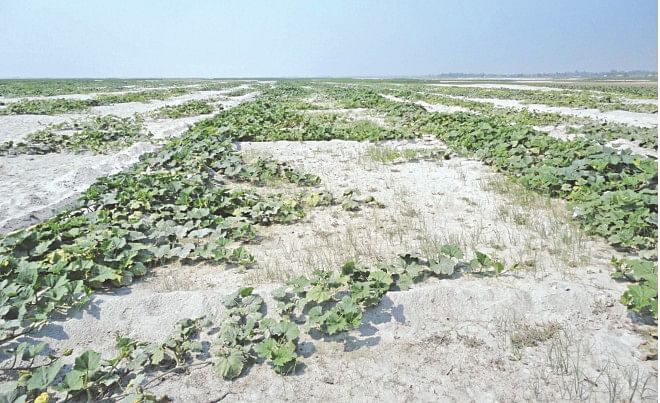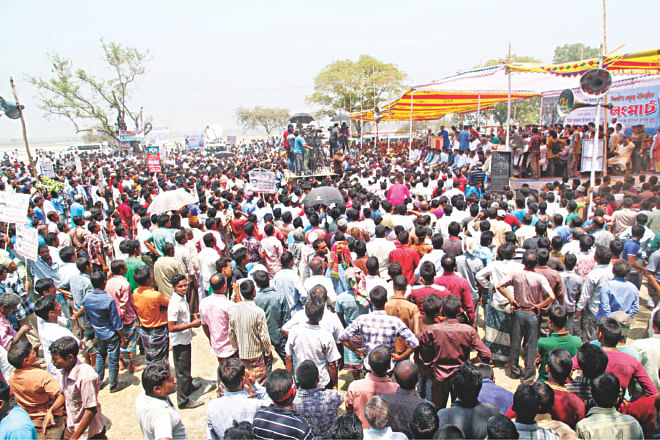Teesta to affect Indo-Bangla relations

BNP, the country's largest opposition party that is not in parliament, yesterday said relations with India would improve if it gave Bangladesh the due shares of water of all common rivers including the Teesta.
“Otherwise, our relation will grow sour,” said BNP acting secretary general Fakhrul Islam Alamgir, addressing the concluding rally of its long march near the Teesta barrage in Nilphamari.
BNP standing committee member Nazrul Islam Khan echoed him.
Fakhrul said Bangladesh needed around 10,000 cusecs of water in the Teesta river from India to fulfil the demand of the northern region.
In a scathing attack, he said as the government was formed without people's votes, it could not protect people's rights.
The BNP spokesperson also said, “The government will not displease India, as it wants to remain in power with its blessings.”
“That's why we all will have to stay united for tough movement for an immediate election, through which a people's government will be formed to ensure people's rights.”
Although Fakhrul said on several occasions that their long march was not against anyone, all the BNP leaders, including himself, called upon the people, especially party workers, at every rally to strengthen the anti-government movement.

However, to BNP's disappointment, the two-day march towards the Teesta barrage concluded amid very poor response from party leaders and activists as well as masses.
Low participation was seen in all nine rallies held at as many venues on the way from the capital's Uttara to Dalia point in Nilphamari, close to the barrage.
The Daily Star correspondent accompanying the motorcade did not see spontaneous participation of party workers in the long march, BNP's only public issue-oriented programme after the January 5 national elections, which the party and its allies boycotted.
The concluding rally was held on the helipad in Dalia, witnessing a crowd of some 6,000 people, said our Nilphamari correspondent.
Apart from Fakhrul, only three members of BNP's 18-member standing committee, the party's highest decision-making body, joined the march, two of them on the final day.
On the 400km way from Dhaka to Nilphamari, four or five bamboo arches were seen to greet the marchers, which disappointed BNP.
A BNP mid-ranking leader said the long march failed to attract grassroots because of the party high-ups' failure in the last year's anti-government movement despite their huge efforts in many districts.
Fakhrul's controversial role in the movement frustrated many grassroots leaders, he said.
According to a BNP central leader, Fakhrul's negative image in the grassroots is seen as another reason for the poor response.
Although top leaders of the BNP-led 19-party alliance assured BNP chief Khaleda Zia of their full support to the march, none of the top leaders of the allies showed up in the programme.
On the second day, BNP held two rallies--one in Rangpur city with around 500 people and the final one at Dalia.

 For all latest news, follow The Daily Star's Google News channel.
For all latest news, follow The Daily Star's Google News channel. 



Comments